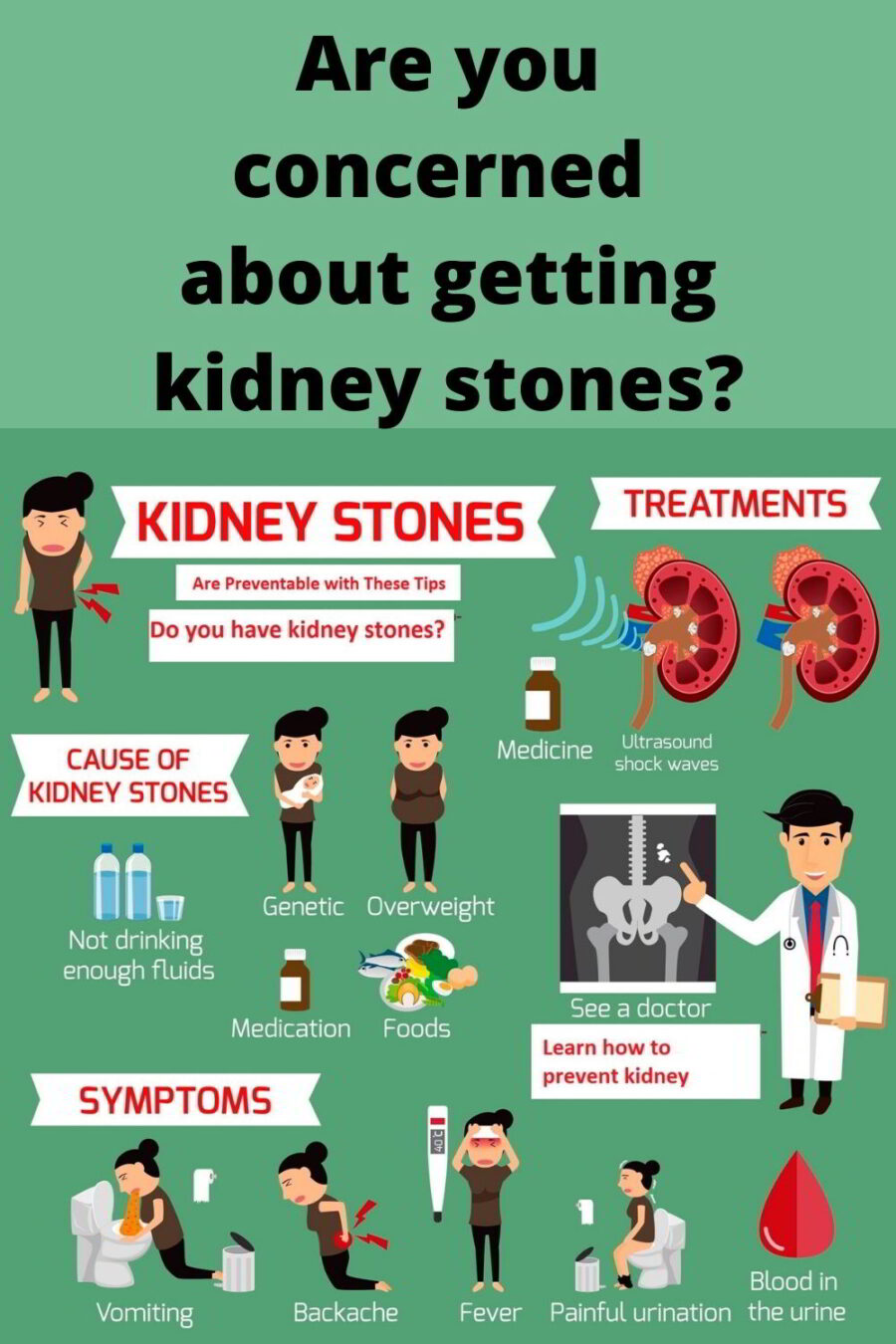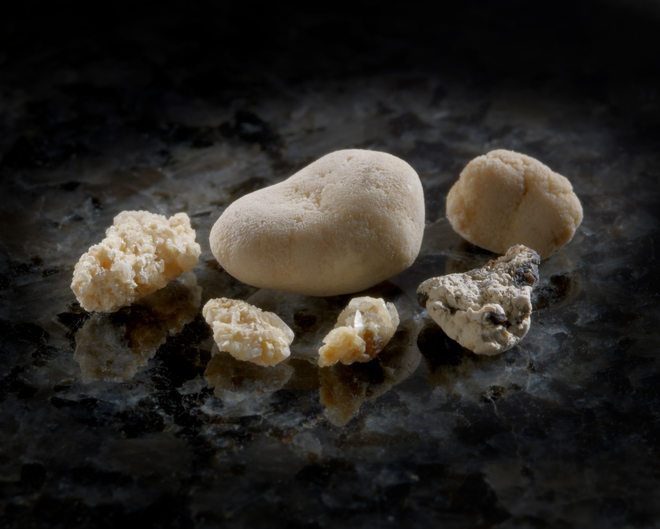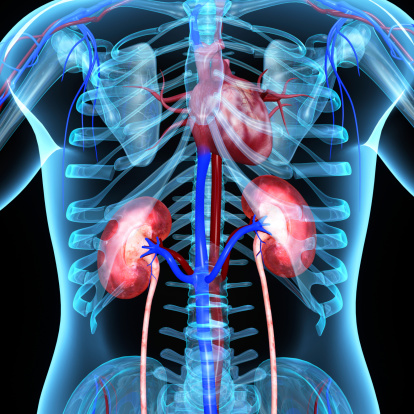Having kidney stones can be painful so it is good to know how to prevent kidney stones with these tips. Once one begins to pass, there is almost nothing you can do but suffer and endure. You can learn how to prevent getting them with the tips below.

If you are between 30 and 60 years of age, your chances of going through this ordeal are approximately one in ten. But, this likelihood significantly increases if you’ve adopted certain eating and lifestyle habits.
If you’ve already had a kidney stone, there is a 50 percent chance of getting another one within five years, and up to an 80 percent of recurrence over ten years. Unless you take preventative measures.
Avoiding this experience is so much easier and smarter!

What Causes Kidney Stones?
Kidney stones start as tiny crystals in your urine that would normally leave your kidney and be eliminated through your bladder.
If there are a lot of certain compounds in your urine that promote these crystals (calcium, oxalate, sodium, phosphorus and uric acid) and few, that prevent them from growing (citrate, magnesium, pyrophosphate, phytate, proteins, and total urine volume), they slowly grow bigger.
If the stones grow big enough, they are trapped in the delicate kidney tissues and become stones.

6 Things To Do To Prevent Kidney Stones
1. Drink enough liquids throughout the day.
The most important factor for the prevention of kidney stones is to produce adequate volumes of urine. Your urine should be light and clear if you are properly hydrated.
To stay properly hydrated, you should be drinking the recommended 8 glasses a day. You can also eat water-based foods like watermelon, celery, fresh fruits, and vegetables.
2. Drink fresh citrus beverages, like lemonade and orange juice. This means make your own, not juices in a carton or can. The citrate in these beverages helps block stone formation therefore helping prevent kidney stones. The exception to this is grapefruit juice which is associated with higher risk.

3. Eat less oxalate-rich foods (rhubarb, okra, spinach, beets, Swiss chard, tea, chocolate, and soy products).
This is considered to be particularly important if you have calcium oxalate stones. (the most common form of kidney stones).
However, this is disputed by some health experts. There is no scientific evidence that oxalic acid in food causes kidney stones. Victoria Boutenko has done much research on high oxalic acid foods and has found that a reduction of oxalate foods actually increases the formation of kidney stones. While this prevention tip is important, it may not be the one you want to prioritize.
4. Eat a diet low in salt.
A low-sodium diet is recommended for those who have a history of kidney stones and want to prevent them. This will also be good for your blood pressure and heart.

5. Eat less animal protein.
Studies show that high animal protein decreases the ability of our urine to inhibit the agglomeration of calcium oxalate crystals.
The Center in Mineral Metabolism and Clinical Research in Dallas, Texas found: “The animal protein-rich diet was associated with the highest excretion of undissociated uric acid due to the reduction in urinary pH. The oxalate excretion was lower than during the vegetarian diet.
The idea that we have to eat animal meat to get enough protein is a myth. While animal meat is a protein option, there are abundant non-animal protein sources, such as beans or lentils.
6. Eat calcium-rich foods, but use caution with calcium supplements.
When we don’t get enough calcium in our diet oxalate levels can rise and cause kidney stones. Make sure to eat food high in calcium like almonds and other nuts and seeds. Don’t go too far, because you can have the reverse problem, too. There are studies that link taking calcium supplements to kidney stones.
7. Limit your coffee consumption.
A little coffee is OK, but large amounts may put you at risk. Population studies show that coffee and tea drinkers generally had fewer kidney stones. But, some researches find that large amounts of coffee raise urine calcium levels.
8. Drink less sugary drinks.
“Adults who drink at least one sugar-sweetened drink a day are slightly more likely to develop kidney stones than people who rarely imbibe them,” according to a new study.
9. Eat a balanced alkaline/acid diet. High acidic diets create an environment that encourages kidney stones. A more alkaline diet can help prevent kidney stones and many other degenerative diseases.
Conclusion: Prevention isn’t a great motivator for many people since you don’t see instant results, like when you lose 20 pounds or create more muscle tone. Passing kidney stones though, is such a horrendous experience that it is worth following these tips to prevent kidney stones, especially if you are at high risk.
The good news: all the recommendations to prevent kidney stones are recommendations for a general healthy diet. Let’s keep our kidneys healthy without the stones.

This is exactly what I write about at Real Food For Life and what I teach people to plan and cook in my online classes.
The benefits of a healthy diet with lots of whole fresh foods do include the benefits that we are highly motivated for more energy, easy weight loss, beautiful skin, and a slower aging process.
Have you experienced kidney stones? Did you change your eating habits? Do you need to prevent getting kidney stones?


Yes, I have had kidney stones since 2005 and been treated for them several times. I’ve noticed that every diet list for avoiding kidney stones is different. For example, you say no sugary sodas, but the list from my doctor approves Coke and Pepsi. My doctor’s list says asparagus is low oxalate, but the list from the Oxalosis and Hyperoxaluria Foundation says it is high in oxalate. The list I was given in 2008 says that strawberries are high oxalate, so I stopped eating them and replaced them with blueberries. The latest list from my doctor says blueberries are worse than strawberries. It’s insane, I don’t know what to eat!
Really nice post thanks for sharing